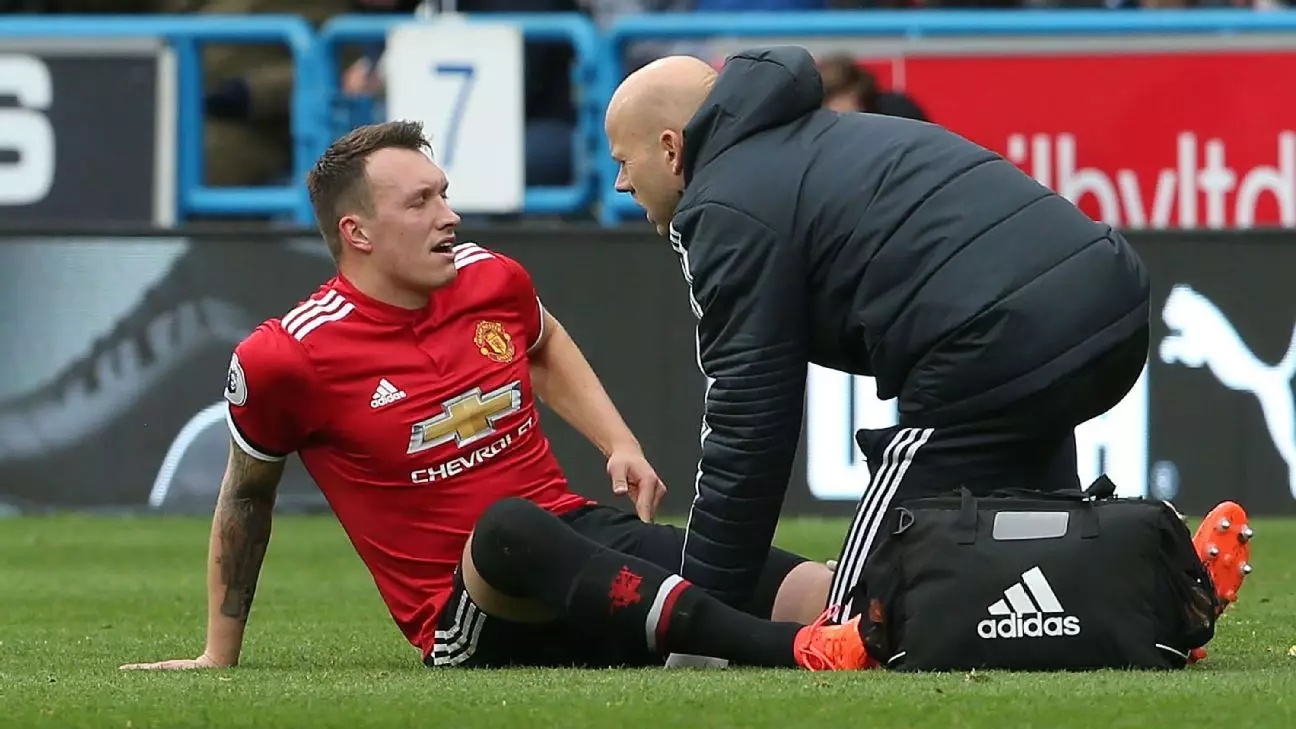In the fast-paced and demanding world of professional football, players often bear a heavy burden, balancing the expectations of fans, clubs, and personal ambitions. Nowhere is this struggle more evident than in the careers of athletes like Phil Jones, Mason Mount, and Luke Shaw. Jones, a former Manchester United defender, recently opened up about his experience with injuries that plagued his career, expressing his deep empathy for fellow teammates grappling with similar challenges. In an industry where success is measured largely by appearances and performance, the emotional toll of injury can be devastating.
Mount and Shaw have faced a relentless cycle of recovery. Since early December, both players have been sidelined due to hamstring and calf injuries, respectively. The struggle is not merely physical; it extends to the mental aspects of their game, as the inability to contribute leads to feelings of inadequacy. Mount, who made a significant move to United from Chelsea for £55 million, has already missed 51 matches since joining, while Shaw’s situation is equally alarming, having missed more games than he’s played since his 2014 transfer. The lack of control over their careers can be agonizing, as fans expect instant gratification from high-profile signings.
A Reflection on Regret
Jones’s retrospective insights underscore a common emotion among athletes facing injury: embarrassment. He articulated this sentiment poignantly, stating that it feels particularly humiliating to be unable to perform at a club as prestigious as Manchester United, which is perceived as the “biggest club in the world.” The passion that drives players—an intrinsic love for the game—turns into frustration when they are relegated to the sidelines. Jones’s candid acknowledgment of regret resonates with anyone who has ever faced obstacles that hinder personal ambitions.
Further complicating the recovery process are the incessant critiques from both fans and social media. The relentless nature of public scrutiny amplifies feelings of inadequacy, provoking a sense of urgency to return before one is truly ready. However, Jones emphasizes that the imperative should always be the players’ well-being; they must not rush back until they are mentally and physically equipped to give their best on the pitch. The culture of immediate results often pressures athletes to overlook their own health, potentially leading to long-term consequences.
Empathy in a Competitive Landscape
The camaraderie among players during these trying times offers a glimmer of hope and solidarity. Jones’s empathy points to a need for mutual support within the team—a reminder that behind every statistic and headline, there are real human experiences filled with trials and tribulations. His experiences can serve as a reminder to current and future players: prioritizing health over immediate return is crucial, even in a world that revels in showcasing athletic prowess.
In the broader context, the struggle of injured players highlights essential discussions within professional sports about how organizations can better support athlete health and wellness. Investments in psychological support services, tailored rehabilitation programs, and a cultural shift to value players’ long-term health over short-term victories are all vital components of fostering a more resilient and compassionate sporting environment.
Ultimately, the journey through injury is a testimony to the resilience of athletes, revealing not just their physical limitations but also the strength of their spirit in navigating the turbulent waters of professional sports.

